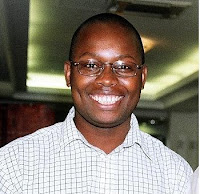Devaluation of the Malawi Kwacha - what is the way forward?
What is required, therefore, is for the Malawi Government to urgently introduce further measures to promote exports, that is to increase production and value addition to exportable products. In the interim, we can look at further incentives in the tobacco sector, cotton, sugar, tea, coffee and other exportable agricultural products. We can also look at other important agricultural products such as maize, pulses, groundnuts, spices (such paprika) etc. As people are harvesting their crops now, what incentives can we provide in order to turn them into exportable products? For example, I would recommend provision of support to groups of farmers or interested firms for processing and value addition in various agricultural products, through removal of certain duties and taxes on importation of processing and packaging equipment and machinery (all these applying only for export oriented value addition).
We also have a uranium mine in Malawi, which is an export oriented venture - we need to look at what further incentives we can provide to Paladin, the mining company, in order to increase production of the uranium ore to boost our exports. We should discuss with the company to increase its production in order to take advantage of the devaluation that will make Malawi's uranium ore more competitive. A comprehensive assessment of our export potential is urgently needed right now to make use of the 48% currency devaluation.
Malawi has over 50% of its population living below the poverty line equivalent of $1 a day. In this case, the poor will be greatly affected by the current policy decision - they will be more vulnerable to the shock. They need urgent social protection support and so too do the small to medium scale entrepreneurs. To ameliorate the current desperate economic situation in Malawi, the Government ought to provide a mix of interventions. The Government of Malawi is planning to introduce public works programmes, where the people will have an opportunity to work for at least 12 days per month in order to earn a monthly wage. The public works programmes are a very good social protection or safety net measure meant to cushion the poor against the shocks of a devaluation. The devaluation is a shock to the economy in that in the interim it will cause some inflationary pressure on the economy (the prices of goods are generally going to rise due in part to the subsequent increases in interest rates). The social safety nets are therefore a short term mechanisms to help the poor survive the shock. In the long run, Government has to bring in other policy interventions, some of which have been suggested above - and this ought to be treated as a matter of urgency.
As a matter of background, it is important to note that social protection mechanisms are not new in Malawi - they have been there mostly from the 1980s upon adoption of IMF/World Bank structural adjustment programmes (SAPs) to perform the exact function that Government is intending now - to cushion the poor against the structural adjustment shocks. Furthermore, the current devaluation is one of the SAP measures. Historically, Malawi used to rigidly control the value of the MK during the one-party rule of Dr. H. Kamuzu Banda's time until it was floated at the advent of a prulalist democratic system of government in 1994. The Malawi Social Action Fund (World Bank sponsored) was a pinnacle of social protection, which I do not know how successful it is now. But during Bakili Muluzi's tenure as president of the Republic of Malawi (1994-2004), MASAF was a great real success story that was replicated in a number of African countries including Tanzania (TASAF), Zambia (ZAMSIF), Nigeria and other countries. MASAF, designed with assistance from the World Bank, got its lessons from Sri Lanka and Pakistan. By the way, I worked for MASAF then. If it weren't for MASAF, the SAPs which were implemented in full during Muluzi's era, such as privatisation of state assets, some parastatal institutions and businesses; floatation of the Malawi Kwacha; liberalisation of interest rate system; re-organisation of the public service among others, the negative effects of SAPs on the poor would have been worse. President Bingu wa Mutharika the third president of the Republic of Malawi ruled from 2004 to 2012. President Mutharika did not show any keen support of MASAF and therefore re-organised the institution into a decentralisation support mechanism, rendering its impact rather luke-warm and weak. My own view is this that: had Mutharika's government maintained MASAF and complemented it with the successful agriculture subsidy programme, Malawi would have reduced poverty to around 30% and be on track to achieve all the Millennium Development Goals (MDGs), which are due for evaluation in 2015.
By re-introducing the public works programme (which I would suggest, should just mean revival of MASAF in its old form) and continue with the agriculture subsidy programme the current Government will succeed in the shortest period of time where the Mutharika government failed.
With the right mix of interventions, both interim and long term, we will have embarked on the necessary rather painful steps to long term sustainable economic recovery. There is no short-cut to healing a failing economy. The devaluation is a positive first step, but much more needs to be done for the whole economy to be vibrant.
Kennedy Lweya, PhD
Nairobi
Labels: Currency Devaluation, Malawi



0 Comments:
Post a Comment
<< Home